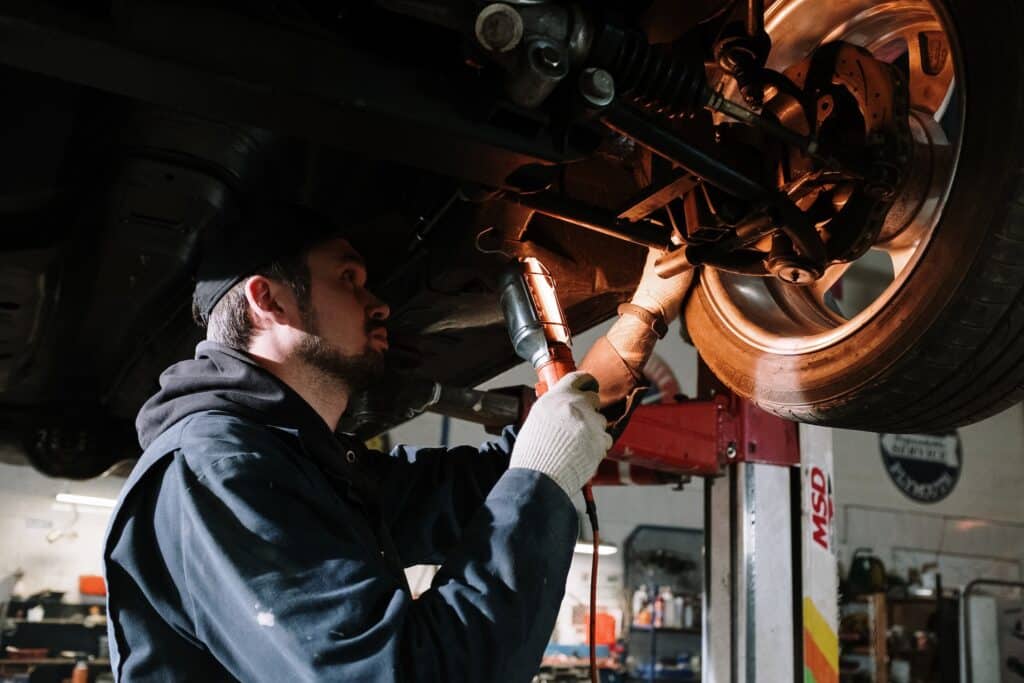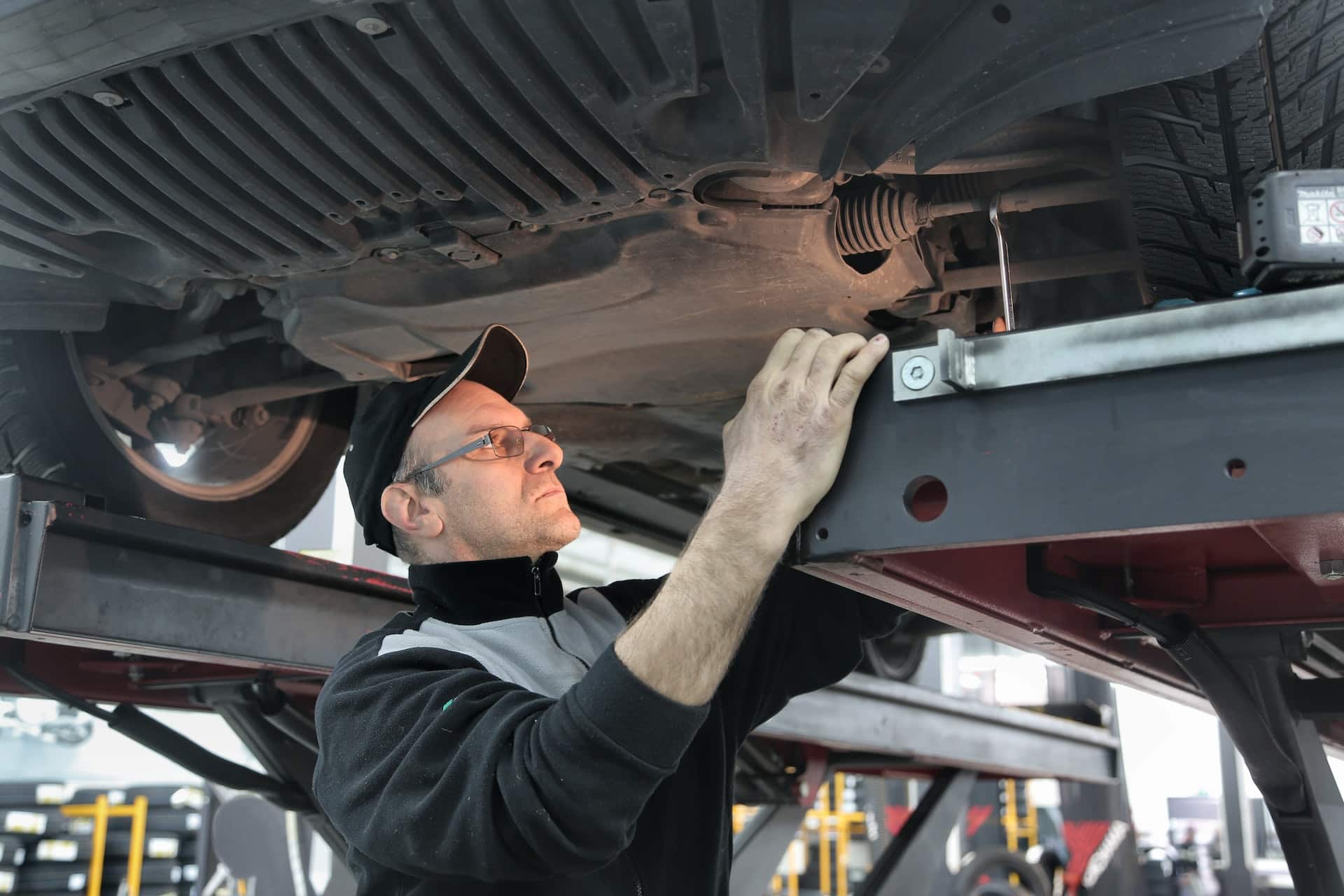Affiliate Disclosure: Automoblog and its partners may earn a commission if you purchase coverage from the extended warranty providers outlined here. These commissions come to us at no additional cost to you. Our research team has carefully vetted dozens of extended warranty providers. See our Privacy Policy to learn more.
In the half-century since its debut in 1972, the National Institute for Automotive Service Excellence (ASE) has become the standard bearer for certifying professionals in the automotive industry. Like certifications in any other industry, becoming an ASE Certified Master Technician or getting other credentials can help auto industry professionals advance their careers. Also like other certifications, getting those credentials takes time, work, and money.
With the current nationwide mechanic shortage still raging, there is a pressing need for qualified technicians. This guide will tell you how to get ASE Certified, along with the costs and benefits of doing so.
How To Become ASE Certified: Step-By-Step Process
The specifics of becoming an ASE-Certified mechanic vary somewhat depending on the credentials you’re seeking and other factors. However, the steps you need to take to become certified remain very similar across the board. The process outlined below is based on obtaining Master Technician status, but can also serve as a guide for other certifications.
1. Work As an Auto Technician for Two Years
You need two years of experience as a mechanic to be eligible for ASE certification. If you don’t currently have that experience, you’ll need to get it before you do anything else.
If you don’t have the relevant education or experience, in some cases you may be able to find employment at a repair facility where you can learn on the job from professionals. However, you’ll typically have an easier time finding a job if you have some kind of formal training first.
Many local community colleges offer automotive repair courses and associate’s degree programs. These courses may also count towards your time requirement.
2. Choose the Certifications You Want
Master Technician status is the ASE certification that works for most auto repair professionals. To get that certification, you’ll need to pass automobile and light truck certification tests A1 through A8. If you want to work on light truck and diesel engines, you’ll also have to tackle A9.
However, if you want to become more specialized or prepare for a job other than technician, the organization has other types of certifications. You can find all of the tests that ASE offers in more detail on its website.
If you are unsure of which certification you should pursue, speak to a manager or owner at a repair facility. You can also find advice online on forums such as Reddit. Getting the wrong certification for your goals can be a waste of time and money, so make sure you know exactly what you need before signing up for your course.
Types of ASE Certifications
The most popular ASE credential – and the one people tend to refer to when using the term ASE-Certified mechanic – is Master Technician status. However, the organization offers 58 certification exams across 18 different categories. Those categories include:
3. Sign Up for Your Courses
Once you’ve decided which certifications you want, you’ll need to find and sign up for the courses. Your local community college may offer the courses you need. But if you’re unsure of where to sign up, you can use a search tool on the ASE Education Foundation website.
The costs for these classes vary depending on the institution that offers them. Generally speaking, courses at community colleges are likely to be less expensive than those at private institutions. However, private courses may offer some advantages, such as smaller classes and more flexibility.
If you need help paying for classes, you can apply for financial aid or loans. The amount you qualify for will depend on your current income. To apply for aid, you can fill out the Free Application for Federal Student Aid (FAFSA).
4. Complete the Coursework
After registering for your classes, you’ll need to complete the instructional hours and the coursework for your certification. Some or all of your coursework may be online, but in many cases you’ll have hands-on, in-person components.
How long it takes to complete your classes depends on where you take them. Courses offered at a community college can stretch over an entire semester or summer session. Some private institutions may offer a more condensed timeline, so you may want to consider this option if time is a concern for you.

5. Schedule Your Exam and Pay the Fees
Finishing your coursework is only part of the equation. You’ll also have to pass the exam for each class to become an ASE-Certified mechanic.
ASE certification exams are held at hundreds of locations throughout the country. You can search for a testing center near you by using the Prometric tool and on the ASE website.
You’ll also need to pay the fees to complete your registration. The testing fee is $53 each for most tests. Exams fees for L1, L2, L3, and L4 are $106 each and the fees for the two Military Tactical Wheeled Vehicles (TWV) exams are $85 each. You’ll also need to pay a $34 registration fee per order, regardless of how many tests you sign up for.
6. Study for the Exams
You can retake your certification exam if you don’t pass it on the first attempt – or subsequent attempts. But when you retake the exam, you’ll have to pay the registration fees and exam fees again. Taking the time to study properly for your exams can save you lots of money.
Fortunately, ASE has lots of study resources on its website, including practice tests that you can purchase. While you can find plenty of free study guides online, you can also buy books and other resources to help you.
7. Take (and Pass) the Certification Exams
The final step in getting ASE certified is to pass your exams. You should receive instructions prior to the day of the exam – often at the time of registration – about where and when to show up. The exam will be taken on a computer.
ASE certification exams are timed. Most tests give you an hour and 15 minutes to complete 60 or so questions. You should receive notice ahead of time about the time limit.
You will receive your results instantly and you’ll know whether or not you passed before leaving the testing facility. If you pass, you have completed the initial certification for this course and exam. If you did not pass, you can retake the exam after you register and pay the fees again.
How Long Does it Take to Get ASE Certified?
It takes a little over two years to get an ASE certification if you have no experience as an auto technician. How long it will take you also depends on when you can take the courses and when you can take the exams.
The certification courses themselves vary somewhat in length. However, most individual classes have seven hours of instruction time. Depending on the certification you seek, you may need to complete multiple courses to become certified.
How Much Does It Cost to Get ASE Certified?
The total cost of ASE certification ranges from $87 to around $16,000. Certification exam costs are fixed and consistent nationwide. However, the cost of classes varies depending on where you take them and whether or not you receive financial aid.
For example, certification at a local community college may cost around $5,000 for tuition and fees, but many people qualify for full financial aid and may pay nothing. Private institutions may charge as much as $16,000 for courses.
Getting ASE Certified: Is It Worth It?
The process of getting ASE certification can be long and involved, depending on where you are in your career. But for many, completing the process can be a major step towards growing a career in the automotive industry. Matt Lofton, owner and president of Strut Daddy’s Complete Car Care in Roxboro, North Carolina told Automoblog that ASE certification is a valuable credential for job-seeking technicians.
“[ASE certification] shows that the certified individual has a commitment to learning, is capable of retaining information, and has a general understanding of the system and its operations that the individual is certified for,” said Lofton. “It also shows an individual is motivated to improve their value in the industry.”
In addition to making a technician more attractive to employers, certification tends to come with a salary increase. According to some reports, ASE Certified technicians make 20-30% more than their non-certified peers. The average annual salary nationwide for an ASE Certified mechanic is $58,413 per year. That means that getting your certification could increase your salary by $10,000 or more. Getting specialized training such as certification to work on military vehicles can net you an even higher salary.
For people interested in a long-term career in automotive repair, becoming a ASE Certified demonstrates foundational knowledge and skills needed to be successful. It also provides a universally-recognized pathway to advance and specialize in the industry. In many cases, that makes it more than worth the time, effort, and expense of getting there.


